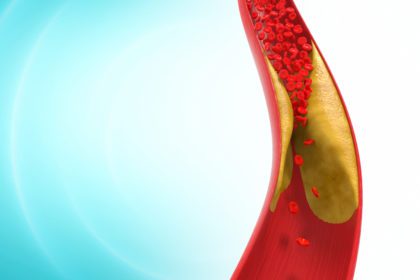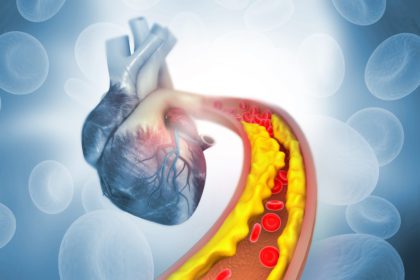Studies show that of the people who have had a heart attack, only 50% had high “bad cholesterol” levels. But another blood test could help determine your chance of having a heart disease.
High Levels of C-Reactive Protein
A recent study revealed that people with an elevated level of C-reactive protein (CRP) in their blood were 3X more likely to have a heart attack. C-reactive protein is made by the liver and found in blood plasma. CRP levels rise in response to inflammation (or swelling) somewhere in the body.
Arteries can become damaged and thus, inflamed when LDL cholesterol (“bad” cholesterol) lines the inner walls of the blood vessels. The liver releases proteins (CRP) to try to heal the damage. Studies have shown that low levels of inflammation play a key role in atherosclerosis (the narrowing of arteries due to the buildup of plaque).
When arteries are inflamed, your risk for the following increase:
- Heart disease
- Heart attack
- Stroke
- Peripheral arterial disease
NOTE: CRP is becoming an emerging and better indicator of cardiovascular disease (CVD) than the lipid panel (test for LDL).
Not a Test for Heart Disease
CRP is a test for systemic inflammation and cannot identify where the inflammation is occurring. Although inflammation and heart disease are associated, the CRP test is NOT a test for cardiovascular disease. To help evaluate your risk for coronary artery disease, a more sensitive variation of the CRP test — the high-sensitivity CRP or hs-CRP — can be used.
Who Should Test
If you’re at a MODERATE RISK for cardiovascular disease, that is, 10% to 20% chance of having heart attack within the next 10 years, it may be helpful to have your CRP level tested, so your doctor can intervene.
- Men age 50 and younger with moderate risk.
- Women age 60 and younger with moderate risk.
- Men age 50 and older with no CVD, diabetes, kidney disease or inflammatory conditions.
- Women age 60 and older with no CVD, diabetes, kidney disease or inflammatory conditions.
Risk of heart disease increases with more risk factors, such as:
- Previous heart attack or stroke
- Family history of heart disease
- High total cholesterol
- Low HDL cholesterol
- High blood pressure or uncontrolled hypertension
- Male or a post-menopausal woman
- Smoke cigarettes
- Diabetes or uncontrolled diabetes
- Sedentary
- Overweight
Risk of Heart Disease and hs-CRP Level
- LOW RISK: hs-CRP level lower than 1.0 mg/L
- MODERATE RISK: hs-CRP level of 1.0 mg/L to 3.0 mg/L
- HIGH RISK*: hs-CRP level of more than 3.0 mg/L
*Even when cholesterol levels are within an acceptable range, a “high risk” hs-CRP level increases risk of:
- Future heart attack (1.5 to 4X the risk)
- Stroke
- Sudden cardiac death and/or
- Peripheral artery disease

![]() Karen’s Fit Tip: The treatment for a high CRP is lifestyle change: plant-based diet, limited processed foods, regular exercise, no smoking, and weight loss if needed.
Karen’s Fit Tip: The treatment for a high CRP is lifestyle change: plant-based diet, limited processed foods, regular exercise, no smoking, and weight loss if needed.





